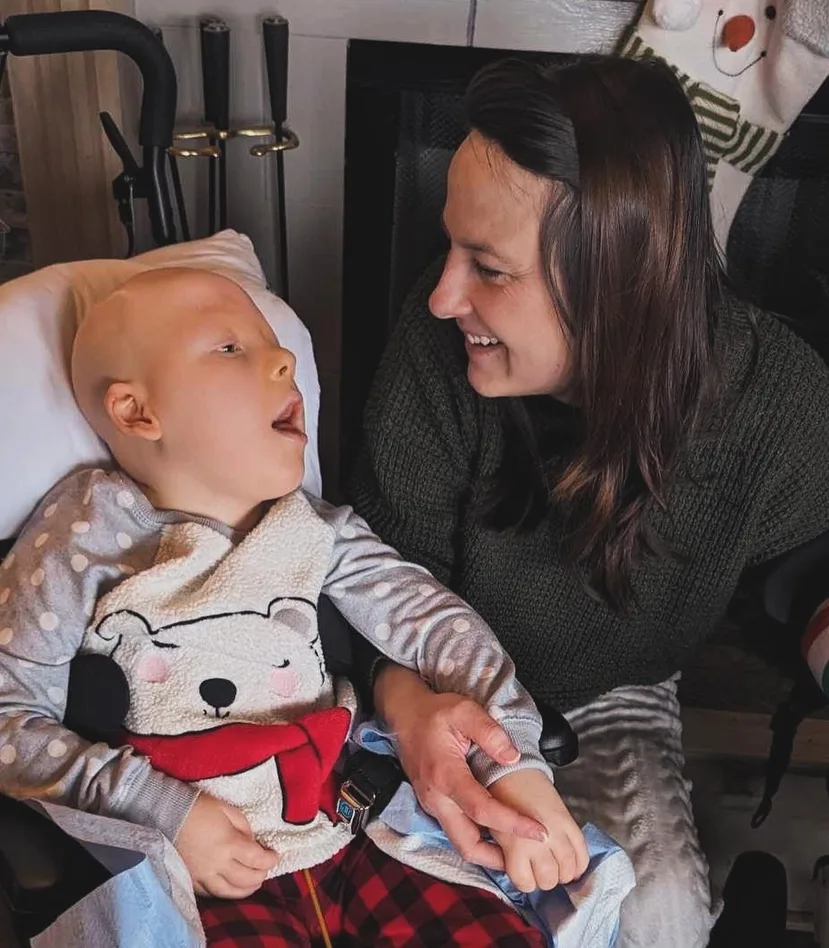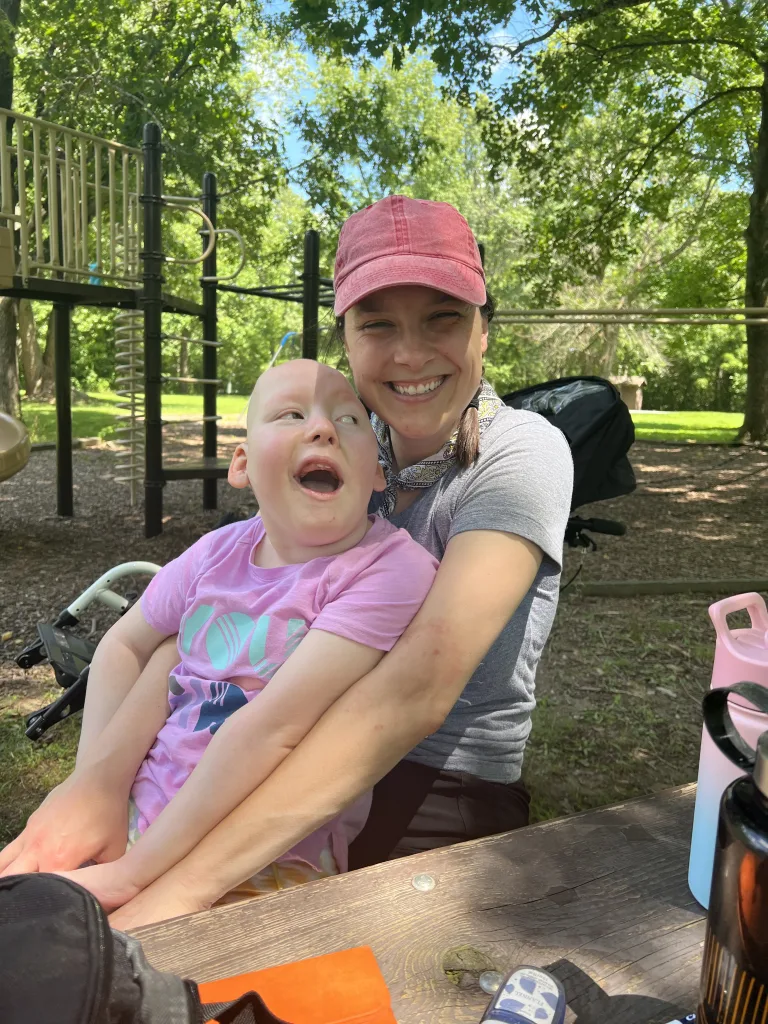Webinar Series to Help Families, Caregivers and Youth Navigate the Transition to Adulthood

Learn practical strategies and tools to plan for the transition to adulthood during our free two-part series
Families can face new challenges and shifting roles as young people move toward adulthood.
Join the Division of Specialized Care for Children (DSCC) to learn more about navigating this journey during our free “Preparing for Adulthood: A Roadmap for the Future” webinar series.
The two-part series will feature Claire Cook, DSCC Title V Transition Specialist, and Suzanne Aaron, Northern Illinois Outreach Specialist for Illinois Life Span.
The sessions will cover:
- “Session One: Navigating Adult Systems,” June 26 at 6 p.m.
This session is for youth ages 12 to 15 and their families. Families with children at other developmental stages are also welcome to attend.
This session will provide practical tools for exploring and understanding adult systems, such as health care, education, employment and more. It will also cover strategies for balancing independence and guidance as family roles evolve.
- “Session Two: Empowering Parents and Caregivers,” July 31 at 6 p.m.
Session two is for parents, caregivers and families of youth ages 16 and older with complex needs and/or disabilities.
Building on session one, participants will dive deeper into adult guardianship, health insurance, benefits and programs for youth with complex needs. The session will focus on creating meaningful daily routines while managing evolving family dynamics. It will also explore the role of support circles and how to make decisions that support youth and caregivers in the long run.
- “Primera sesión: Recorrer los sistemas de los adultos,” 26 de junio a las 6 p. m.
Esta sesión es para padres, cuidadores, familias y jóvenes de 12 a 15 años. Las familias de jóvenes en otras etapas de desarrollo también son bienvenidas.
- “Segunda sesión: Empoderar a los padres y cuidadores,” 31 de julio a las 6 p.m.
Según la primera sesión, este seminario web se centrará en tutela de adultos, seguro médico, beneficios y programas para jóvenes con necesidades complejas, crear rutinas diarias importantes mientras se maneja la dinámica familiar en evolución y la función de los círculos de apoyo y cómo tomar decisiones que apoyen a los jóvenes y a los cuidadores a largo plazo. Esta sesión ofrecerá a las familias conocimientos y estrategias adaptadas a sus retos únicos.
Each presentation will be in English. Live Spanish interpretation will be available.
The recordings and slides for both sessions will be available on our Family Education Webinars page.
If you have questions about the series, please contact Claire Cook at clairer3@uic.edu or (800) 322-3722.
Please spread the word and plan to join us!
Resources to Become a Certified Nursing Assistant
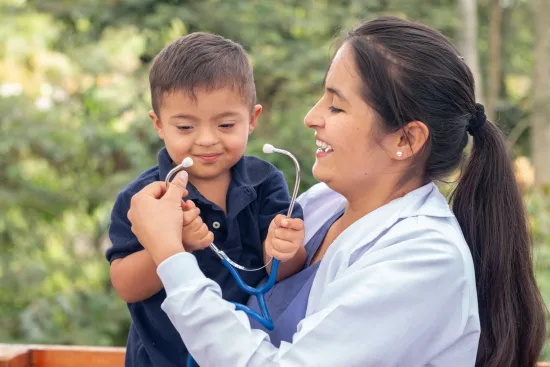
We developed a tip sheet to help guide parents and caregivers through the steps to become a CNA.
We continue to wait for approval to allow parents/legally responsible adults (LRAs) to become paid caregivers if they are a certified nursing assistant (CNA) and employed by a nursing agency.
We understand that our participant families are eager for this change to take effect. Allowing parents and caregivers who are CNAs to become paid caregivers is an important step in strengthening support for families of individuals who need in-home shift nursing.
To help families prepare as we await approval, we’ve put together a Certified Nursing Assistant Resources Tip Sheet.
This tip sheet aims to guide parents and caregivers through the steps to become a CNA. It links to several websites for your convenience and provides general guidelines.
You can also find the CNA Resources Tip Sheet on our Home Care Nursing Information for Families page.
Our Family Advisory Council reviewed this tip sheet to make sure it’s as helpful for families as possible.
Please remember that currently, parents/LRAs can only be paid for providing skilled nursing services to their children if they hold an active registered nurse (RN) or licensed practical nurse (LPN) license. This rule applies to parents/LRAs of all children approved for Home Care Program services, regardless of the child’s age.
The plan to allow CNAs as paid family caregivers requires an amendment to the Medicaid Home and Community-Based Services Waiver for Those Who Are Medically Fragile, Technology Dependent (MFTD waiver). It also requires the creation of a new state plan amendment. Both approvals must be in place to allow for this change.
There is currently no set timeline for the state plan amendment and the MFTD waiver amendment to be approved.
Once approved, we will notify you as quickly as possible.
If you have any questions, please contact your DSCC Care Coordinator at (800) 322-3722.
Share Your Feedback on Key MFTD Waiver Updates to Strengthen Support for Families
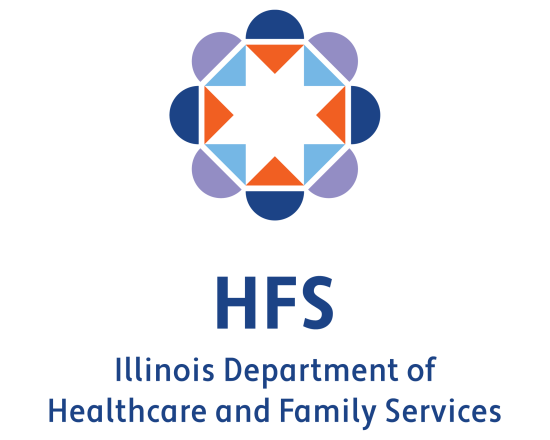
Families have through Sept. 28, 2024, to share input on waiver amendments allowing CNAs to become paid family caregivers and nursing rate increases.
Families have an opportunity to share feedback on several significant updates to the Medicaid Home and Community-Based Services Waiver for Those Who Are Medically Fragile, Technology Dependent (MFTD waiver).
The Illinois Department of Healthcare and Family Services (HFS) is the Medicaid agency responsible for the MFTD waiver. Many families in the Home Care Program have children who receive services through this waiver.
HFS is currently seeking approval from the federal Centers for Medicare and Medicaid Services (CMS) for waiver amendments that will:
- Allow parents who are certified nursing assistants (CNAs) to be paid family caregivers
- Increase rates for in-home nurses and CNA services
Read below for more details about these amendments and how to share your input.
CNAs as Paid Family Caregivers
Plans are underway to allow parents/legally responsible adults (LRAs) to become paid caregivers if they are a CNA and employed through a nursing agency.
Currently, parents/LRAs are paid for providing skilled nursing services to their children if they hold an active registered nurse (RN) or licensed practical nurse (LPN) license. This rule applies to parents/LRAs of all children approved for Home Care services, regardless of the child’s age. (Read more about our efforts to make paid licensed family caregivers a permanent benefit.)
Allowing parents and caregivers who are CNAs to become paid caregivers is an important step in strengthening our support for families of individuals who need in-home shift nursing.
This update would give more parents/LRAs the opportunity to earn payment for the caregiving they provide their children at home.
This change requires an amendment to the MFTD waiver as well as the creation of a new state plan amendment.
Nursing Rate Increase
HFS is also proposing a 7 percent rate increase for in-home nurses and CNA services to take effect on Jan. 1, 2025.
This rate increase would affect:
- RN, LPN and CNA care
- In-home and facility-based respite care
- Nurse training rates
The proposed rates are as follows:
- RN, $57.78 per hour
- LPN, $48.15 per hour
- CNA, $32.10 per hour
We hope this rate increase can help make more high-quality nursing options available for our participant families.
Transitional Care Services provided outside the home (not an MFTD waiver service) is expected to have a rate increase from $950 to $1,300 a day. This increase would also take effect on Jan. 1, 2025.
Other Key Updates in the Amendment Include:
- Adds adaptive equipment and assistive technology as new services.
- Makes pest control a post-approval process. This change means families will not need to receive prior approval for pest control services.
- Makes the Division of Specialized Care for Children (DSCC) the entity responsible for the prior approval for home accessibility modifications, vehicle modifications, medical equipment operating expenses, adaptive equipment, placement maintenance counseling and assistive technology.
- Removes the requirement of two bids if the cost exceeds $2,000 for waiver services. This change is necessary to help increase access to services.
Share Your Feedback
The public comment period for these proposed waiver amendments is now open.
To review the full list of proposed waiver updates, you can:
- Review a hard copy at HFS’ offices at:
- 201 South Grand Ave. E.,
Springfield, IL 62763 - 401 S. Clinton
Chicago, IL 60607
- 201 South Grand Ave. E.,
The deadline to provide feedback is Sept 28, 2024.
You can share your feedback in two ways:
- Via email to HFS.HCBSWaiver@illinois.gov
- Via mail to the Illinois Department of Healthcare and Family Services, Attention: Waiver Operations Management, 201 South Grand Ave. E., 2FL, Springfield, IL 62763
This public comment process is one of the best ways you can have your voice heard.
HFS will send your comments to the federal CMS as part of the waiver approval process.
If you have questions, please contact HFS’s Waiver Operations Management Unit at (217) 524-4148 or (844) 528-8444.
In-Depth Training Opportunity in Chicago for Families and Caregivers of Children with Complex Medical Needs
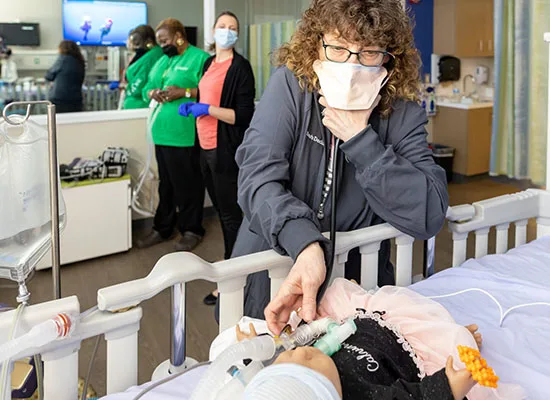
This free in-person training will take place July 24-25 at UIC’s Simulation and Integrative Learning Center in Chicago.
Registration is now open for a special in-person training program for the families and caregivers of children with complex medical needs.
This free two-day training will take place Wednesday, July 24, through Thursday, July 25, at the University of Illinois Chicago Simulation and Integrative Learning (SAIL) Center on the fifth floor at 1220 S. Wood St. in Chicago.
Families have expressed the need for more support for parents/caregivers of children with complex medical needs. We are excited to partner with Almost Home Kids to provide this valuable training opportunity. It will offer essential tools and knowledge to help you in your caregiving journey.
The training will be from 8 a.m. to 4:30 p.m. each day. The in-depth curriculum will include:
- Reducing the risk of infection
- Skin care
- Daily care of the child with a tracheostomy and ventilator
- Activity and movement
- Equipment and alarms
- Gastrostomy care and feeding
- Tracheostomy basics
- Respiratory assessment and interventions
- Ventilator training with hands-on practice
- Emergency preparedness
- Caregiver resiliency and well-being
- Simulation learning experience
You can also see the Caregiver Simulated Training flyer for more details.
Please sign up online to participate in the training. There is no cost to attend.
For more information, email connect@almosthomekids.org or contact Yolanda Rivera at yrivera@luriechildrens.org.
This training is part of our efforts to use federal funding from the American Rescue Plan Act to improve support and services for families of children with complex medical needs.
Almost Home Kids (AHK) provides a bridge from hospital to home through an innovative community-based care system for children with medical complexities. Its services include:
- Responding to the needs of families
- Training caregivers
- Advocating for accessibility and inclusion
- Educating healthcare professionals
Almost Home Kids has locations in Chicago, Naperville and Peoria.
DSCC’s New Home Care Family Outreach Associate is Available to Support Families
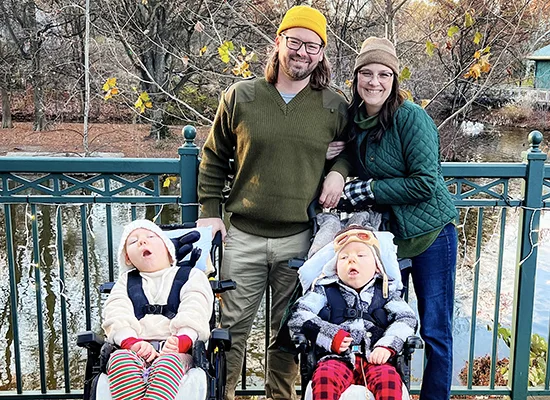
Our Home Care Family Outreach Associate Erica Stearns can offer support, connection and empowerment for DSCC families caring for loved ones with complex medical needs.
We understand that caring for a loved one with complex medical needs can pose unique and sometimes unexpected challenges for families.
We are excited to introduce a new Home Care Family Outreach Associate (HCFOA) on our team who understands these challenges and can provide heartfelt support.
With lived experience as a patient, parent and caregiver, our HCFOA can recognize shared experiences and guide families through the complexities of multiple systems of care.
Our HCFOA also works to create a sense of community for caregivers within the Division of Specialized Care for Children (DSCC). In this community, families can feel supported, empowered and more confident in their caregiving journey.
Erica Stearns recently joined DSCC as our first HCFOA. She is the proud parent of two children, Margot and Caratacus, who have been enrolled in the Core and Home Care programs since 2016. They reside in southern Illinois and enjoy the beauty of the Shawnee National Forest.
Erica also serves as the co-chair of DSCC’s Family Advisory Council. You can learn more about Erica, her family and her caregiving journey in The Stearns Family Story.
As our HCFOA, Erica works hand-in-hand with families and caregivers to:
- Create trusting partnerships
- Offer tailored support in addition to the care coordination services they receive from DSCC
- Provide essential caregiver resources
Erica helps ensure that caregivers are equipped with the knowledge and skills they need to advocate for their children and navigate complex systems of care. She can help support your family as you navigate:
- Adjusting to a new norm
- Needing support for your child/loved one’s medical needs and increased level of care
- Looking for guidance on what to expect
- Wanting to connect with other families
Families can request to connect with Erica in several ways. You can ask your DSCC care coordination team to refer you to the HCFOA. You can also email a request to speak with Erica at DSCC-FamilySupport@uic.edu.
For more information about the HCFOA and Erica, please visit our Home Care Family Outreach page.
Research Study Seeks Families to Help Improve Home Health Care for Children
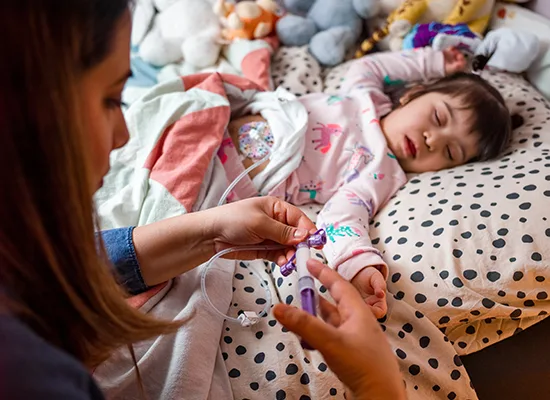
“SafeCare@Home4Kids” aims to understand and prevent safety issues at home for children with medical complexity
A research study is looking for families to help improve home health care for children with complex medical needs.
The study is called “The SafeCare@Home4Kids Learning Lab: Designing Safer Healthcare at Home for Children.” It wants to learn from parents of children with medical complexity about what it is like to care for your children at home, including giving your children complex medication and using your children’s devices. The study aims to find ways to help prevent safety problems with this complex caregiving at home.
Dr. Carolyn Foster of Ann and Robert H. Lurie Children’s Hospital of Chicago is leading the research team. Foster is also a member of the Division of Specialized Care for Children’s (DSCC) Medical Advisory Board.
By sharing your experiences, you can help “SafeCare@Home4Kids” find ways to better support and help parents while reducing problems and challenges at home.
What does the study involve?
Participation in the study will take about one week. For seven days, you will send photos or text-based messages about your experience with your child’s medication-related activities and devices at home. Please note, if you do not have a device, the study researchers will loan you one.
After the week is over, you will meet with research team members to talk about your messages. You will also participate in a “critical decision methods” interview about how you:
- Identify problems with your child’s medication or device
- Communicate the problem
- How you have problem-solved these issues in the past
The research team will keep your answers confidential. If you complete all study steps, you can receive up to $195 by virtual gift card.
How do I participate?
You can enroll in the “SafeCare@Home4Kids” study if you:
- Speak English or Spanish
- Have a child who is 17 years old or younger with a disabling complex chronic condition who uses an implanted medical device to receive medication at home (such as a gastrostomy tube)
Please email fosterlab@luriechildrens.org or call (312) 227-2510 to enroll or ask questions.
For more details about the “SafeCare@Home4Kids” study and DSCC’s involvement, please visit https://dscc.uic.edu/dscc-partners-in-research-study-to-improve-home-health-care-for-children/.
You can also see the study flyer for more information.
DSCC Partners in Research Study to Improve Home Health Care for Children
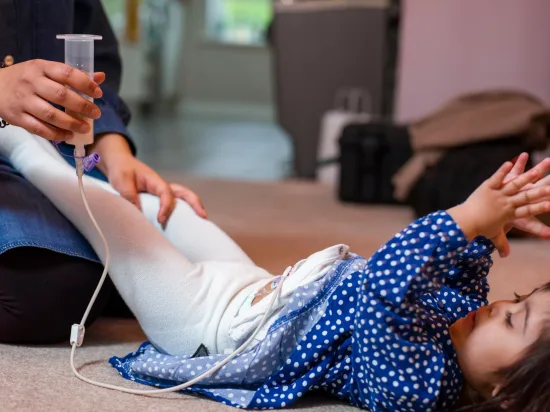
“SafeCare@Home4Kids” aims to understand and prevent safety issues at home for children with medical complexity
The Division of Specialized Care for Children (DSCC) is excited to partner on a new research study to help improve home health care for children with complex medical needs.
The research team is led by Dr. Carolyn Foster of Ann and Robert H. Lurie Children’s Hospital of Chicago. Foster is one of our Medical Advisory Board Members.
Foster and her research team have received a $2 million grant award to fund the study, called “The SafeCare@Home4Kids Learning Lab: Designing Safer Healthcare at Home for Children.”
This study will bring together experts and patient families to better understand how family caregivers and home nurses can help identify, communicate and prevent safety issues at home for children with complex medical needs. The study will use this input to create a digital safety toolkit to help support families.
DSCC Executive Director Thomas F. Jerkovitz said DSCC appreciates this opportunity to partner in the study. He said DSCC will share our team’s experiences with families and home nurses who report safety challenges at home.
Dr. Molly Hofmann, our Director of Care Coordination, Systems Development and Education, is one of the participating experts.
“DSCC plays such a pivotal role in supporting care in the home and… is a repository for safety events,” Foster said. “DSCC also plays such a functional role in creating solutions, so it was pretty clear to me I wanted to have DSCC be a partner in the grant.”
Children with medical complexity need substantial amounts of care to live safely at home. In recent years, their families have taken on increasingly more in-depth medical care at home.
“We send patients home with increasingly more complex medical regimes, and families have expressed to us they didn’t have a clear way to get the support they need when experiencing problems at home,” Foster said.
“A lot of our patients have an artificial airway to help them breathe or they have a g-tube in their stomach to help them eat. If that gets clogged or it falls out or the tubing connected to the machine gets broken, then they can’t get the nutrition they need and they end up in the emergency room. And it’s a life-threatening event at home if their airway isn’t working,” Foster continued. “The idea for the study is we want to find out what are the things leading up to when those safety events occur so we can prevent them.”
“SafeCare@Home4Kids” also wants to help improve communication when medical device and equipment malfunctions happen at home.
“Doctors don’t always know, and families might not know that they should or can tell us about it. They might tell the DME (durable medical equipment company) to get the replacement part, but we don’t know about it, so we keep ordering it for other patients,” Foster said. “It’s both an issue for current patients and also an issue for future patients.”
The study aims to create a better system where families can communicate safety problems at home and know who to notify when they occur.
“One of the problems we recognize is families are scared they’re going to get in trouble. We want to make sure they feel supported to let us know when medical problems are happening at home,” Foster said. “The goal is to move past the reporting safety events to preventing them in the first place.”
The study will also host focus groups to hear directly from families about the safety issues that affect them.
“The goal is to hear from real families on what it’s like day-to-day,” Foster said. “Hopefully it’s the beginning of several projects to support how we’re improving care in the home.”
If you are a family member and would like to participate or learn more about the “SafeCAre@Home4Kids” study, you can email Foster at fosterlab@luriechildrens.org.
We are excited to collaborate with Foster and her research partners on this important project. We’ll share more updates and opportunities to get involved as it progresses.
The project kicked off in September and will continue through July 31, 2027.
Strategies to Empower Family Caregivers
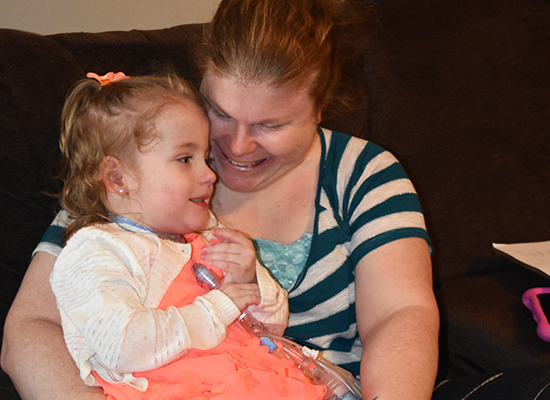
DSCC provides support and resources to strengthen caregivers’ ability to care for themselves and children with special healthcare needs.
November is National Family Caregivers Month. It’s an opportunity to celebrate all of you who selflessly and continuously care for your children and loved ones with special healthcare needs.
At the University of Illinois Chicago’s Division of Specialized Care for Children (DSCC), we recognize the huge role you play in your child’s overall health and wellbeing. We value our partnership with parents and caregivers to help set goals for your child, identify strengths and make plans to achieve what is important to your family.
We also understand the importance of caregiver health and providing you the right support and resources. DSCC is dedicated to empowering caregivers and strengthening your ability to provide care for someone else.
We recognize how you are there every day, managing multiple care needs and navigating complex healthcare systems, insurance systems and more. Our priority is to help strengthen your knowledge, reduce your stress and help you feel more confident and organized in your child’s care.
Here are three significant ways we aim to empower caregivers:
- Partner with you to identify what you, your child and your family need. As the parent or caregiver, you know your family’s unique needs and values better than anyone. We listen to these needs and partner with you to identify your child and family’s goals and how to accomplish them. If you are not enrolled in our program or need help knowing how to identify your needs, this quick self-assessment tool can help.
- Help you brainstorm and connect with others. Conversations around health allow all of us to get creative, see things differently and develop new ways of doing things. These creative ways can save you time, energy or allow for improved interactions. Some connections in the community are your primary health or behavioral treatment specialist, other DSCC parents or a community parent support group.
- Connect you to the latest research and information. As growing research helps us better understand physical and mental health, it can also show new techniques, interventions and treatment options. Think about how you learn best and reach out to trusted sources. Our staff can help you find the best sources of information. We are also experts on local resources and supports available in your community.
The physical and emotional demands of caring for a child with special healthcare needs are 24/7. Though we can’t take away all the worries and emotions, we can provide a consistent helping hand to support you through your child’s journey with a medical condition
To learn more about our care coordination, visit our How We Help page. You can also contact your local DSCC Regional Office or call us at (800) 322-3722.
Our online Resource Directory also includes resources and tips for caregivers.
Featured resources include:
- Caregiver Action Network’s Family Caregiver Toolbox
- The National Alliance on Mental Illness’ Self-Care for Caregivers
- Family Caregiver Mental Health and COVID-19
- National Caregivers Library
- Preparations for Caregivers During COVID-19 and Beyond
- Emotional Well-Being Toolkit: Resources for Children, Families and Caregivers
- National Respite Locator
- Easterseals Respite Services for People With Disabilities
- Apps for Caregivers
- Self-Care and Emotional Wellness Apps
- Coloring Pages for Caregivers
DSCC Cares About Caregivers
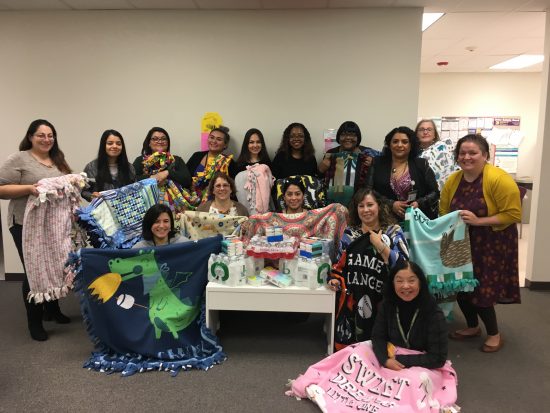
DSCC staff join forces to honor caregivers during National Family Caregivers Month.
Staff at the University of Illinois at Chicago’s Division of Specialized Care for Children (DSCC) understand that caring for a child with special needs is one of the most demanding circumstances a family can face.
For National Family Caregivers Month in November, we wanted to do something special to support the amazing caregivers we partner with while also having fun working together as a team.
We invited our regional offices to plan a service project to benefit a group of caregivers in their community. Many of our staff jumped at the chance to participate.
Here’s a recap of how they helped –
Champaign Regional Office
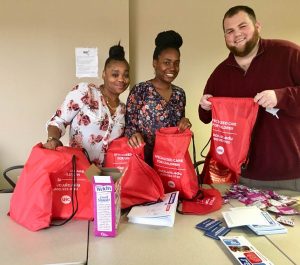 Champaign RO staff put together care packages for families with children hospitalized in the Carle Foundation Hospital neonatal intensive care unit (NICU).
Champaign RO staff put together care packages for families with children hospitalized in the Carle Foundation Hospital neonatal intensive care unit (NICU).
They filled our DSCC drawstring backpacks with items to help make staying at the hospital more comfortable for these deserving parents. Champaign staff are also partnering with Carle’s NICU and mother/baby social workers so families are aware that DSCC is here to help connect them to services and resources.
Carle’s NICU and mother/baby social workers were thrilled to pick up the packages and to have our organization as a source of support for their families.
Lombard Regional Office
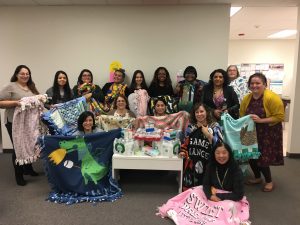 The Lombard RO made 17 cozy fleece blankets for the children staying at Almost Home Kids in Naperville.
The Lombard RO made 17 cozy fleece blankets for the children staying at Almost Home Kids in Naperville.
Almost Home Kids provides transitional care in a home-like setting to children with complicated health needs, training for their families and respite care.
Lombard staff made the no-sew blankets during their breaks. They also donated three cases of water and multiple packs of Kleenex to add to the “Go Bags” that Almost Home Kids provides to their families.
Marion and Olney Regional Offices
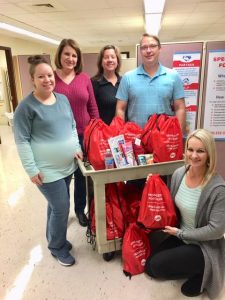 The Marion and Olney ROs joined forces to create caregiver bags for families who have children in the NICU at Memorial Hospital of Carbondale.
The Marion and Olney ROs joined forces to create caregiver bags for families who have children in the NICU at Memorial Hospital of Carbondale.
One of the NICU nurses shared that families often need note pads, pens, snacks, warm socks, etc.
Marion and Olney staff donated enough of these items to fill 25 DSCC drawstring bags.
Mokena Regional Office
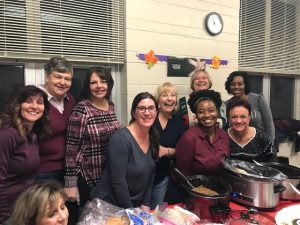 On Dec. 7, our Mokena RO team prepared and served dinner at the local PADS (Public Action to Delivery Shelter) at Zion Lutheran Church in Tinley Park.
On Dec. 7, our Mokena RO team prepared and served dinner at the local PADS (Public Action to Delivery Shelter) at Zion Lutheran Church in Tinley Park.
PADS provides overnight shelter and meals for people who are homeless. Community partners, such as churches and congregations, provide sites for the shelter and teams of volunteers to run it from October to April.
Mokena staff made a dinner of homemade Sloppy Joes, roast turkey, plenty of sides and a dessert for approximately 30 women and children.
Peoria Regional Office
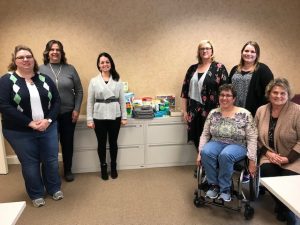 Peoria RO staff collected items off of the wish list for the newly opened Almost Home Kids at OSF Children’s Hospital of Illinois.
Peoria RO staff collected items off of the wish list for the newly opened Almost Home Kids at OSF Children’s Hospital of Illinois.
Almost Home Kids opened in Peoria in September. The 12-bedroom, 21,000-square-foot facility provides transitional care in a home-like setting for children with complex medical needs. It also provides training and respite care for their families.
Almost Home Kids is funded entirely through community donations.
Our Peoria staff purchased diapers, baby wipes, towels, coffee, children’s books, assorted toys and other supplies to help the children feel more at home.
Rockford Regional Office
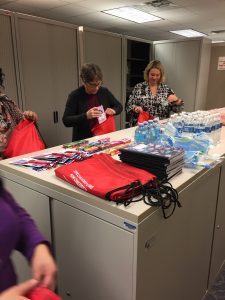 The Rockford RO staff provided bags of comfort and a taste of home to the NICU families at Mercyhealth Rockford.
The Rockford RO staff provided bags of comfort and a taste of home to the NICU families at Mercyhealth Rockford.
They donated money and purchased wish list items to make 25 backpack care packages.
Each bag contains a journal, pen, water, drink mix, calendar, hand sanitizer, Kleenex, chapstick, gum, granola bars, chicken soup and lotion.
Springfield Regional Office and Central Administrative Office
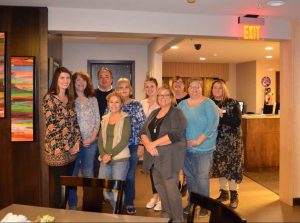 Our Springfield RO and CAO staff worked together to prepare a meal for the families staying at the Ronald McDonald House Charities of Central Illinois in Springfield.
Our Springfield RO and CAO staff worked together to prepare a meal for the families staying at the Ronald McDonald House Charities of Central Illinois in Springfield.
They decided on a pasta bar menu with sides and a dessert. Employees divided up portions of the menu to do the shopping ahead of time. A group of 11 prepared the meal at the house on Nov. 5.
The Springfield and CAO staff also collected donations to purchase a total of 33 gift cards for the families staying at the house to use at HSHS St. John’s Children’s Hospital’s dining facilities and coffee shops.
We are proud of our staff’s generosity and strong commitment to improving their local communities!



